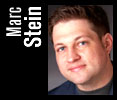 |

|
Special to ESPN.com |
|||||||||||||||||||||
|
The word has been written and spoken and repeated so many times that it eventually lost its classification as an adjective. Instead, the word became David Falk's new first name.
Superagent. On first reference, almost without fail, it's Superagent David Falk. The practice continues even today, funnily enough, even though Falk can't be feeling very super at all. Superagent? Not after watching every move he attempts to orchestrate come unstuck. Not knowing that his foremost free-agent clients, Glen Rice and Maurice Taylor, have received nowhere close to the maximum contracts they were originally promised. Not with Patrick Ewing still stuck in New York, weeks after Ewing asked Falk to get him out. All sounds rather mortal, doesn't it? This summer, dare we say so, he is simply Agent David Falk. Or maybe the Agent Formerly Known As Superagent. One thing is definite: Falk, like so many team executives and players in this league, has seen his powers neutralized and ego endangered by the twin kryptonites everyone faces. The NBA's 1999 collective-bargaining agreement. And the forthcoming luxury tax. Both forces have established firm ceilings on what teams are able and willing to spend. The CBA, specifically, drastically limits what the players can receive. Factor in the reality that the aforementioned Falk stars aren't the players they used to be (or should be, Mr. Taylor) and, bam, a Superagent can be reduced to mere Agent status. Or did you miss:
It was only one Olympiad ago that Falk, even without representing king of the free-agent class Shaquille O'Neal, negotiated 13 contracts worth more than $400 million in the summer of 1996. It was just last off-season that players with flag-raising resumes like Taylor's -- Vin Baker, Tom Gugliotta, Penny Hardaway, Nick Van Exel and Antoine Walker -- still managed to score mega deals.
Now? In the new NBA, teams seem quite willing to put their own interests ahead of Falk's threats. In the new NBA, Falk could not rant and rave until forcing his Ewing/Baker/Rice extravaganza to go through. As a result, it's Falk's marquee clients who have suddenly inherited the Juwan Howard-sized risks. Rice, for example, is most likely down to one team amenable to paying him major dollars -- and word is that one team, Chicago, will only offer him a one-year deal at $9 million. Falk continues to pursue sign-and-trade scenarios that would get Rice from the Lakers to the Knicks, but it's difficult when they won't accept anything less than a $7 million starting point on a new contract. And when new Lakers personnel chief Mitch Kupchak is only allowed by boss Jerry Buss to spend money on players named Shaq and Kobe. In Taylor's case, the risk is perhaps even greater. Rice is 33 and has been earning NBA cash since 1989. Taylor, 23, is a serious injury or bad season away from blowing a lifetime of security. The Rockets can go $12-13 million under the cap next summer, so chances are Taylor will recoup a good chunk of what he turned down from the Raptors, but it's hardly clear-cut. Houston will also have to re-sign Shandon Anderson, who signed for less than market value (with wink-wink promises) a year ago, and renounce the rights to free agent-to-be/hometown hero/living legend Hakeem Olajuwon. Same thing had Taylor wound up with the Sonics. Seattle expects to have some $15 million in cap room in 2001, but Wally Walker would have been forced to split that between Ewing and Taylor and others.
Rice and Taylor are thus forced to believe that Falk can go back onto the open market next summer and get what was not gettable this time -- a difficult challenge because it usually requires the completion of a longshot sign-and-trade, as seen in Falk's bold but ultimately failed four-way. Ditto for Ewing, a 2001 free agent whether he stays a Knick or not, and Dikembe Mutombo, Falk's other Georgetown free agent come July. NBA history suggests Falk will rebound, but it's no slam dunk. Agents, like coaches and GMs, are only as good as their players. And in the first free-agent frenzy of the new millennium, it was obviously much better to be the egoless Lon Babby (Tim Duncan and Grant Hill) or Leon Rose (Eddie Jones) than a Superagent. "One of the things I love about the NBA is it's so small," Falk told The Dallas Morning News in 1998. "You deal with the same people over and over again. "I don't have any hair, but if somebody wants to take your scalp, I will say I'm like Arnold Schwarzenegger. I'll be back." Agent Falk, we'll be watching. Marc Stein, who covers the NBA for The Dallas Morning News, is a regular contributor to ESPN.com. |
| ||||||||||||||||||||



